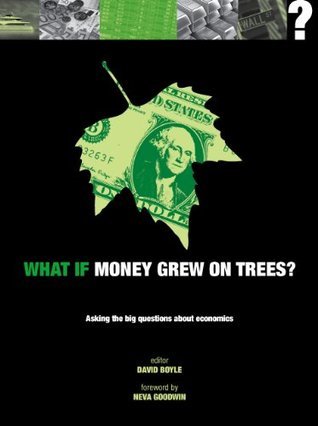
Consider a world where gold is worthless, everybody earns the same amount, banks do not exist and international trade is banned. Would our lives be better if all work was fun, debt was wiped out and anybody could live wherever they wanted? What would happen if we banned adverts, stopped shopping and rationed carbon? All these ideas and more are analysed and debated in this timely new book.Consider a world where gold is worthless, everybody earns the same amount, banks do not exist and international trade is banned. Would our lives be better if all work was fun, debt was wiped out and anybody could live wherever they wanted? What would happen if we banned adverts, stopped shopping and rationed carbon? All these ideas and more are analysed and debated in this timely new book. In between these speculations, there are also seven historical ‘what ifs’, which examine the consequences of real-life economic experiments, such as ‘What if we abolish slavery?’ and ‘What if we just keep printing banknotes?’. You need to speculate to accumulate. With its informative and thought-provoking speculations, ‘What If Money Grew on Trees?’ will help you to accumulate the knowledge you need to understand the way the financial world works today, and to consider the shape it might take in the future. Also available in the series ‘What If Einstein Was Wrong?’
Author
David Boyle is the author of Blondel’s Song: The Capture, Imprisonment and Ransom of Richard the Lionheart, and a series of books about history, social change and the future. His book Authenticity: Brands, Fakes, Spin and the Lust for Real Life helped put the search for authenticity on the agenda as a social phenomenon. The Tyranny of Numbers and The Sum of Our Discontent predicted the backlash against the government’s target culture. Funny Money launched the time banks movement in the UK. David is an associate of the new economics foundation, the pioneering think-tank in London, and has been at the heart of the effort to introduce time banks to Britain as a critical element of public service reform - since when the movement has grown to more than 100 projects in the UK. He is also the founder of the London Time Bank network and co-founder of Time Banks UK. He writes about the future of volunteering, cities and business. His work on the future of money has also been covered in books and pamphlets like Why London Needs its own Currency (nef, 2000), Virtual Currencies (Financial Times, 2000), The Money Changers: Currency reform from Aristotle to e-cash (Earthscan, 2002) and The Little Money Book (Alastair Sawday, 2003). He has written for many national newspapers and magazines, and edited a range of magazines including Town & Country Planning and Liberal Democrat News. He is the editor of Radical Economics. He lives in Crystal Palace, in south London, with Sarah and Robin (two years old). He is a member of the Federal Policy Committee of the Liberal Democrats and he stood for Parliament in Regents Park and Kensington North in 2001.